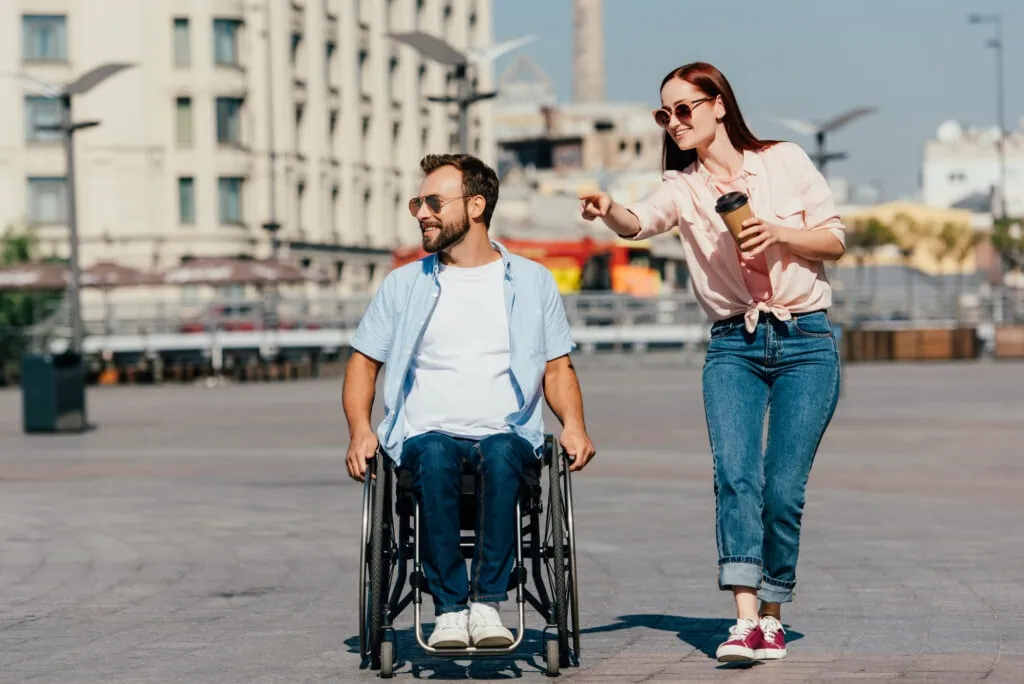
Understanding Substance Use Disorder and Disability
Substance use disorder (SUD) and disability are two complex issues that often intersect, presenting significant challenges for people experiencing them and healthcare entities trying to help.
Understanding the relationship between these two issues is important for developing effective interventions and support systems.
There may be a correlation between disability and addiction. Like all people, those who live with a disability may also have other factors that contribute to substance use. This includes the types of disabilities commonly associated with SUD, the impact of mental health disorders, and the overarching public health challenges and stigmas surrounding these issues.
Predisposition to Addiction Among People with Disabilities?
Are people with disabilities more predisposed to developing substance use disorders? They can be, but many factors can contribute to addiction.
One contributing factor may be the experience of chronic pain or discomfort, which may lead people to seek relief through self-medication with drugs or alcohol. Conditions such as fibromyalgia, multiple sclerosis, or spinal cord injuries often entail persistent pain that can be debilitating and affect one's quality of life.
Despite medical interventions, managing chronic pain can remain challenging, leading people to seek alternative methods for relief. Substances like opioids or alcohol may offer temporary respite from pain symptoms, albeit with the risk of developing dependency or addiction over time.
Other factors can include mental health disorders, poverty, unstable housing, and other socioeconomic isses that often affect people with disability. People living with disability frequently live in extreme poverty, and drugs or alcohol may provide a feeling of temporary escape.
Types of Disability Associated with Substance Use Disorder
People with a wide range of disabilities may experience challenges related to substance use disorder. Physical disabilities, such as spinal cord injuries or chronic illnesses, can increase the risk of addiction due to the need for pain management or the psychological impact of living with a disability. Intellectual and developmental disabilities may also present vulnerabilities, as people may face difficulties in understanding the consequences of substance use or accessing appropriate support services.
Mental Health Disorders, Disability, and Substance Use
The intersection of mental health disorders and disability further complicates the issue of substance use disorder. Conditions such as schizophrenia, post-traumatic stress disorder (PTSD), and mood disorders are more prevalent among people with disabilities, and these mental health challenges can contribute to substance abuse as a form of self-medication.
The co-occurrence of mental health disorders and disability can complicate treatment and recovery efforts, requiring specialized approaches to care. People who get sober also need treatment for these disorders in order to become healthy again.
Public Health Challenges and Stigmas
Both substance use disorder and disability are significant public health challenges that require comprehensive strategies to address effectively. However, societal stigmas surrounding these issues often hinder progress by perpetuating misconceptions and discrimination. People with disabilities may face barriers to accessing addiction treatment and support services, while people struggling with substance use disorder may encounter judgment or lack of understanding regarding their condition.
Breaking Down Stigmas and Building Support Systems
Understanding substance use disorder and disability means working toward solutions to address them. For disabled people, it is essential to prioritize destigmatization efforts and promote inclusive approaches to care. Healthcare providers should raise awareness about the unique challenges disabled people face at this intersection.
Through this, addiction professionals can work to foster supportive communities that embrace diversity and empower people to get the help they need without fear of judgment or discrimination.
The intersection of substance use disorder and disability represents an important challenge with profound implications for people, families, and society as a whole.
By recognizing symptoms of substance use disorder and acknowledging the role of mental health disorders, as well as chronic health issues that may lead to addiction, and confronting the pervasive stigmas, society can affect change.
Addiction professionals and advocates must work toward developing more inclusive and effective solutions to support those affected by these intersecting issues. Addiction recovery communities can help pave the way for a future where everyone, regardless of their abilities or circumstances, has access to the care and support they need to thrive.
Getting Help for Addiction
Present Moments Recovery has helped people from all walks of life begin the path of recovery. We're here to help you achieve long-term sobriety and optimum health. Get in touch to learn more about our programs.
Categories
Addiction Recovery





